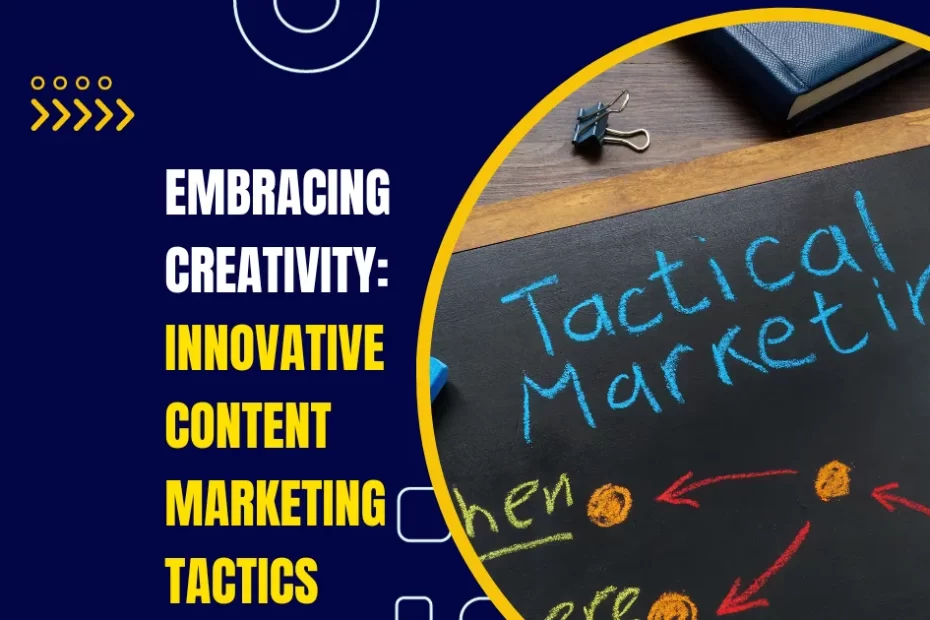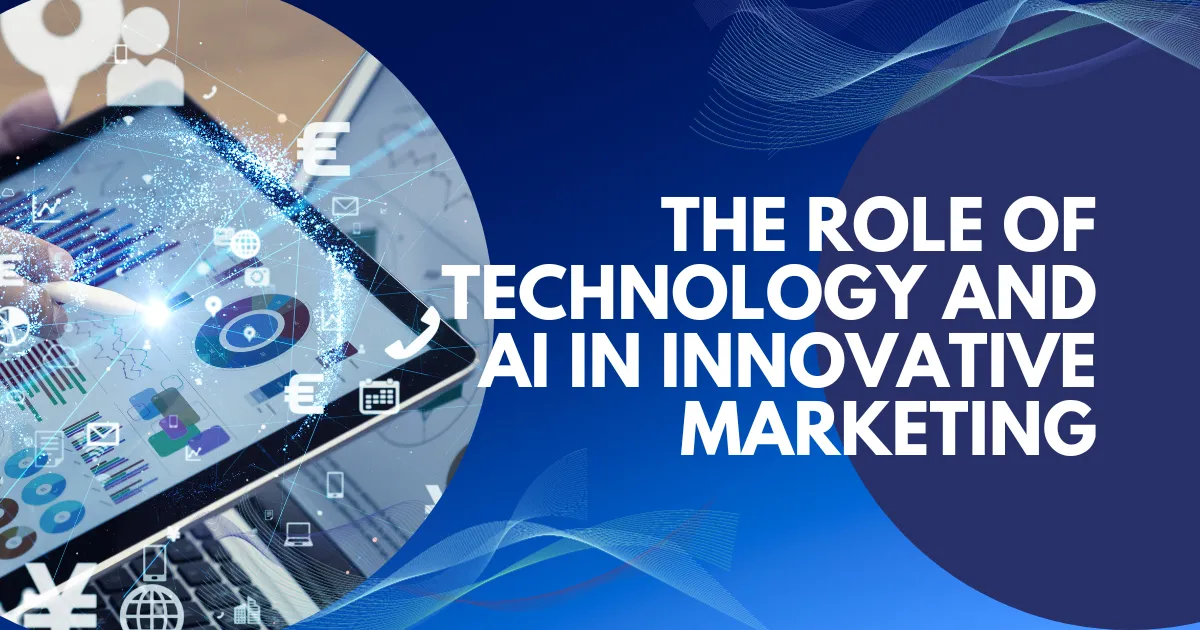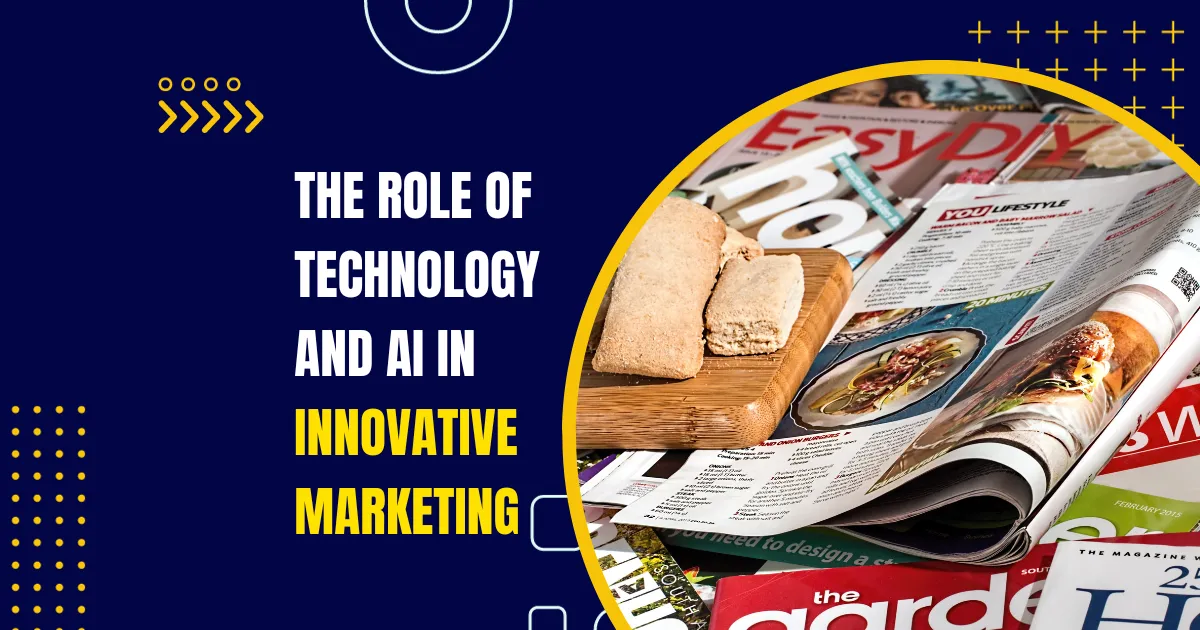What is innovative marketing? Are you tired of using the same old marketing strategies everyone else uses? Are you looking for fresh and creative ways to promote your business and stand out from the competition? Well, you’ve come to the right place! This article will explore some exciting and cutting-edge marketing strategies that will help you take your business to the next level.
Gone are the days when traditional advertising methods like TV and print ads were enough to capture consumers’ attention. With the rise of social media and digital platforms, businesses must think outside the box and create creative ways to engage their target audience. Luckily, plenty of innovative marketing strategies can help you do just that.
Harnessing Innovative Marketing Strategies for Brand Growth
From influencer marketing to interactive content, we will explore a range of strategies that have proven effective in today’s fast-paced and ever-evolving marketing landscape. So, if you’re ready to shake things up and explore new avenues to promote your business, keep reading to discover some game-changing marketing tactics.
Creative Marketing Strategies & Modern Social Media Marketing Trends
a) The importance of understanding the target audience:
Understanding your target audience is the foundation of effective marketing. It helps in several ways:
- Tailored Messaging: You can create messages and content that resonate with your audience’s specific needs, pain points, and interests.
- Better Channel Selection: Knowing where your audience spends time allows you to choose the proper marketing channels for maximum impact.
- Improved ROI: By focusing your resources on reaching the right people, you can achieve a higher return on investment (ROI). {Read more Measuring ROI: Metrics and Analytics in Innovative Marketing}
Conduct market research, create buyer personas, and analyze data from your existing customer base to understand your audience.
b) Leveraging social media platforms:
Social media is a powerful tool for brand visibility and engagement:
- Broader Reach: Social platforms have billions of active users, providing access to a vast audience.
- Engagement Opportunities: Engaging with your audience through comments, likes, and shares can foster brand loyalty.
- Targeted Advertising: Platforms like Facebook and Instagram offer highly targeted ad options.
Best practices include posting consistently, using visuals effectively, and engaging with your audience authentically.
c) Content marketing strategies:
Content marketing is creating and distributing valuable, relevant content to attract and engage a target audience. Successful content marketing strategies involve careful planning and execution. Here’s an overview:
Audience Understanding: Content marketing begins with profoundly understanding your target audience. Knowing their pain points, interests, and preferences is crucial for creating resonating content.
Goal Setting: Define clear objectives for your content marketing efforts. Are you looking to increase brand awareness, generate leads, or drive sales? Setting goals guides your strategy.
Content Planning: Develop a content calendar outlining topics, formats (blogs, videos, infographics), and distribution channels. Consistency is key in content marketing.
Embracing Creativity: Innovative Content Marketing Tactics – Quality Content Creation: Craft high-quality, informative, and engaging content. Address your audience’s questions and provide solutions to their problems.
SEO Optimization: Incorporate search engine optimization (SEO) techniques to ensure your content ranks well in search results. This includes keyword research and on-page optimization.
Distribution Strategy: Promote your content across relevant platforms. This includes your website, social media, email newsletters, and guest posting on authoritative sites.
Measuring Success: Use analytics tools to track the performance of your content. Monitor website traffic, engagement, conversion rates, and social shares to assess effectiveness.
The Future of Innovative Marketing: Trends and Predictions -Iterative Improvement: Content marketing is ongoing. Analyze data and feedback to refine your strategies continuously. Adapt to changing trends and audience preferences.
The Power of Creative Storytelling in Innovative Marketing: Weave storytelling into your content to create emotional connections with your audience. Stories resonate, making your brand more relatable.
Promotion and Amplification: Invest in paid promotion to amplify the reach of your best-performing content. Social media advertising and content syndication can extend your content’s reach.
Examples of successful campaigns include:
- HubSpot’s Blog: They provide valuable resources for marketers, establishing authority in their industry.
- Red Bull’s Content: Their adventure and extreme sports content aligns with their brand identity.
Tips include storytelling, visual content, and optimizing for search engines.
Modern Social Media Marketing Trends
In the ever-evolving digital marketing landscape, staying up-to-date with modern social media marketing trends is imperative for businesses aiming to maintain a strong online presence and engage with their audience effectively. Here are some key aspects of contemporary social media marketing trends:
Innovative Marketing Strategies for the Digital Age – Video Dominance: Video content has taken the lead on social media platforms. Short-form videos, live streams, and engaging visual content like Stories have become essential tools for marketers to capture user attention.
Ephemeral Content: The rise of ephemeral content, such as Snapchat and Instagram Stories, has created a sense of urgency and FOMO (Fear of Missing Out). Marketers are leveraging this trend to provide their audience with exclusive and time-sensitive offers.
Influencer Collaboration: Partnering with influencers has become a mainstream strategy. Influencers can help brands reach a broader and more engaged audience while adding authenticity to their campaigns.
Social Commerce: Social media platforms increasingly integrate e-commerce features, making it easier for users to shop directly through their favorite platforms. This trend allows marketers to create a seamless shopping experience.
User-Generated Content (UGC): Encouraging users to create content related to your brand can be a powerful strategy. UGC fosters community engagement, builds trust, and provides authentic content.
The Role of Technology and AI in Innovative Marketing – AI and Chatbots: AI-driven chatbots improve customer service and engagement. They can answer inquiries, offer product recommendations, and even complete sales transactions.
Privacy and Data Protection: With increased awareness of privacy concerns, marketers must be transparent in their data collection practices and respect user preferences regarding data usage.
Social Listening: Understanding customer sentiment through social listening tools is vital. It helps in creating content and campaigns that resonate with your audience.
Advanced Content Marketing Strategies
Advanced content marketing strategies build upon the fundamentals and delve deeper into creating impactful and targeted content. These strategies require a more nuanced approach and a keen understanding of your audience’s needs and preferences. Here are some advanced content marketing strategies:
Persona-Based Content: Develop content tailored to specific buyer personas within your target audience. This ensures that your messaging aligns precisely with the needs of different customer segments.
Topic Clusters and Pillar Pages: Organize your content around topic clusters with pillar pages as the cornerstone. This SEO strategy helps search engines understand your content’s depth and relevance.
Interactive Content: Engage your audience with interactive content such as quizzes, polls, surveys, and calculators. Interactive elements boost engagement and keep users on your site longer.
Content Repurposing: Maximize the value of your content by repurposing it into different formats. For example, turn a blog post into a podcast episode, video, or infographic.
Content Personalization: Use data-driven insights to personalize content recommendations for individual users. Personalization enhances user experience and increases engagement.
Account-Based Marketing (ABM) Content: In B2B marketing, ABM strategies involve creating highly targeted content tailored to specific accounts or industries.
Long-Form Content: Invest in in-depth, authoritative long-form content pieces. These can establish your brand as an industry thought leader and rank well in search engines.
Content Distribution Networks: Explore content distribution networks (CDNs) to expand the reach of your content. CDNs help you place your content on high-traffic sites and platforms.
User-Generated Content Campaigns: Encourage your audience to create and share content related to your brand. Launch user-generated content campaigns and reward participants.
AI-Powered Content Creation: Experiment with AI tools that generate content ideas, optimize headlines, or even assist in writing articles. AI can enhance efficiency and creativity.
These advanced content marketing strategies require continuous learning, experimentation, and a commitment to delivering exceptional value to your audience. When executed effectively, they can drive significant brand visibility and engagement.
If you’d like more detailed insights on any specific topic or need case studies or strategies for measuring effectiveness, viral marketing, ethical considerations, storytelling, niche targeting, website optimization, guerrilla marketing, data privacy, or partnerships, please let me know, and I’ll be happy to provide more information and recommendations.


